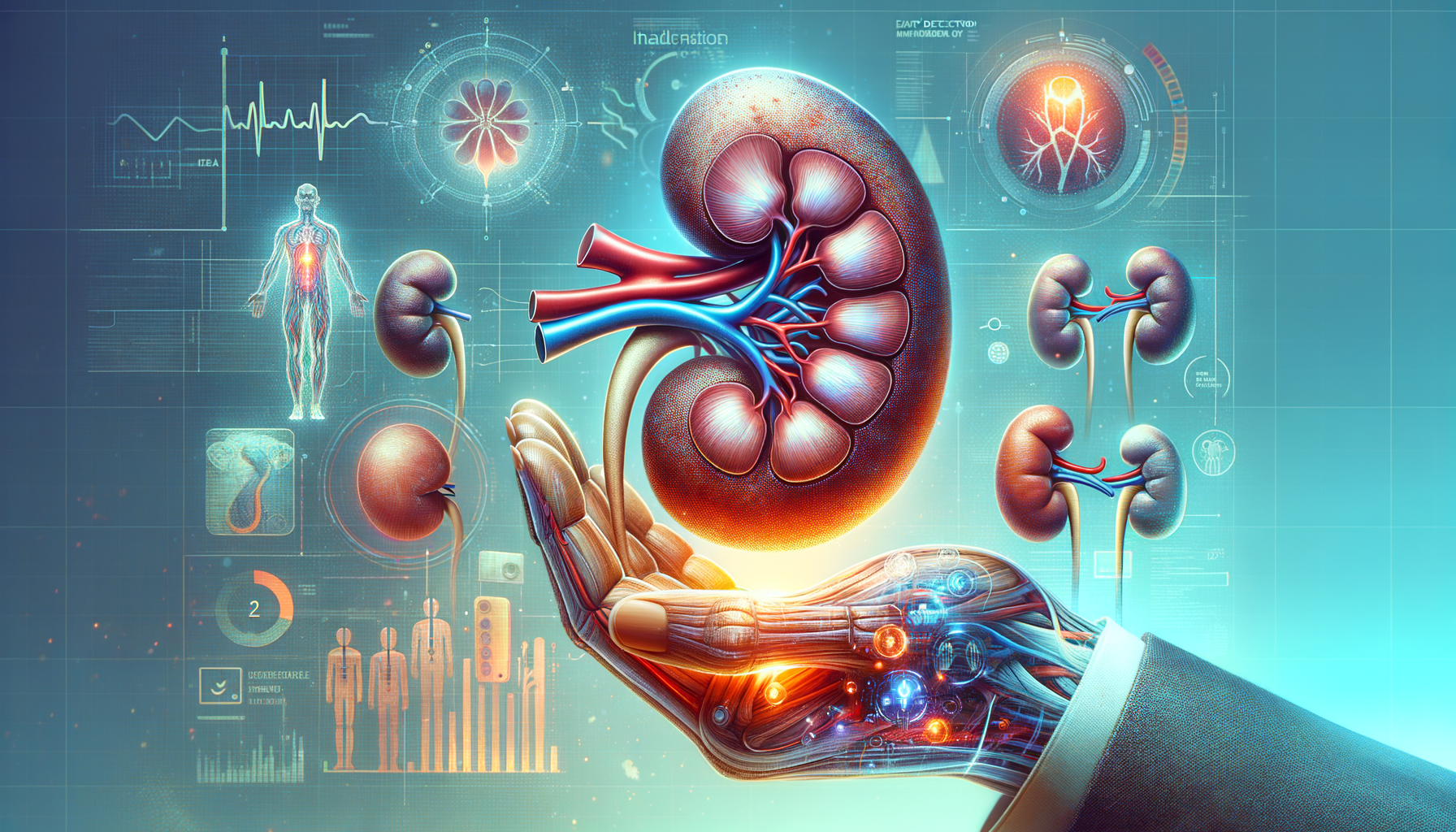
Your Guide to Early Detection and Effective Management of Chronic Kidney Disease (CKD)
Understanding the Early Signs of Chronic Kidney Disease
Chronic kidney disease (CKD) is often referred to as a “silent disease” because its early signs may be subtle or easily overlooked. However, being aware of these early indicators can be crucial for timely intervention. Common early signs include changes in urination patterns, such as increased frequency, especially at night, or a noticeable change in the color or foaminess of urine. Fatigue is another early symptom, as the kidneys’ reduced ability to filter waste can lead to a buildup of toxins in the blood, causing tiredness.
Additionally, individuals may experience swelling in the ankles and feet due to fluid retention, a condition known as edema. This occurs because the kidneys are unable to remove excess fluid effectively. High blood pressure is both a cause and a symptom of CKD, as damaged kidneys can struggle to regulate blood pressure. Moreover, unexplained shortness of breath, often due to fluid buildup in the lungs, and persistent nausea or vomiting can also be early warning signs.
Recognizing these symptoms early can lead to a more proactive approach to managing kidney health. Regular check-ups and blood tests, such as measuring creatinine levels and estimating the glomerular filtration rate (GFR), are essential in detecting CKD in its initial stages. By understanding and identifying these early signs, individuals can seek medical advice sooner, potentially slowing the disease’s progression.
The Importance of Early Detection of Kidney Disease
Early detection of kidney disease is vital for several reasons. Firstly, it allows for timely intervention, which can significantly slow the progression of the disease and improve the quality of life. Early stages of CKD often have few symptoms, which can lead to a delay in diagnosis. However, routine health screenings, including blood pressure checks and urine tests, can help identify kidney issues before they become severe.
One of the primary methods for early detection is testing for proteinuria, the presence of excess protein in the urine, which is a common marker of kidney damage. Blood tests that measure creatinine and calculate the estimated glomerular filtration rate (eGFR) are also crucial. A declining eGFR indicates reduced kidney function and can prompt further investigation and management strategies.
Early detection not only aids in managing the disease but also helps in addressing underlying conditions that may contribute to kidney damage, such as diabetes and hypertension. By controlling these conditions, individuals can reduce the risk of kidney disease progression. Moreover, early intervention can prevent complications such as cardiovascular disease, which is closely linked to kidney health.
Ultimately, early detection empowers patients to make informed decisions about their health, adopt lifestyle changes, and adhere to treatment plans that can preserve kidney function for as long as possible.
Recognizing Symptoms and Exploring Treatment Options for Kidney Disease
As chronic kidney disease progresses, symptoms become more pronounced, necessitating a comprehensive approach to treatment. Common symptoms of advanced CKD include persistent fatigue, swelling in extremities, difficulty concentrating, and muscle cramps. These symptoms arise due to the kidneys’ decreasing ability to filter waste and maintain fluid and electrolyte balance.
Treatment for CKD focuses on slowing the disease’s progression and managing symptoms. Lifestyle modifications, such as adopting a kidney-friendly diet low in sodium, phosphorus, and protein, are often recommended. Regular physical activity and maintaining a healthy weight can also support overall health and blood pressure control.
Medications play a crucial role in managing CKD. Angiotensin-converting enzyme (ACE) inhibitors or angiotensin receptor blockers (ARBs) are commonly prescribed to control blood pressure and reduce proteinuria. Additionally, medications to manage blood glucose levels in diabetic patients, as well as those to lower cholesterol, are often part of the treatment regimen.
In more advanced stages of CKD, dialysis or kidney transplantation may become necessary. Dialysis helps remove waste products and excess fluid from the blood, while a kidney transplant offers a more permanent solution. However, both options require careful consideration and consultation with healthcare professionals.
By recognizing symptoms early and exploring available treatment options, individuals with CKD can take proactive steps to manage their condition and maintain their quality of life.